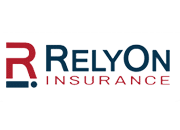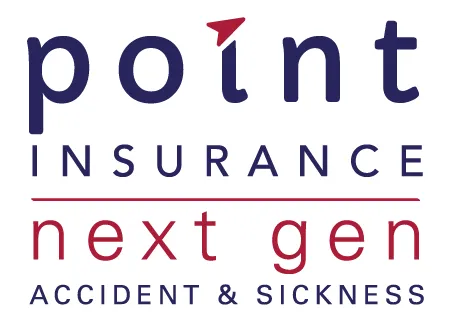Small business insurance is crucial for all small businesses. The exact type of insurance you need will depend on your business type. However, whatever sort of insurance you're after, Savvy can assist you to find quotes to compare right here.
You can compare quotes from some of Australia’s leading insurers through us. Compare them side-by-side to help you choose a policy that matches your business needs and budget. Start the process with us today!
Why compare business insurance policies through Savvy?
100% free service
There's no need for you to pay a cent to compare a variety of competitive policies side-by-side in one place.
Compare policies online
You can consider the inclusions, premiums, benefits and other key factors easily online, whether you're at home or on the go.
Trusted insurers
Considering offers from trusted providers can help give you peace of mind that you're comparing high-quality products.







We’ve partnered with BizCover to bring you a range of business insurance policies to help you compare them side by side.
What does small business insurance include?
Small business insurance provides essential protection for businesses, covering a range of risks and liabilities. It offers coverage tailored to the specific needs of small businesses. Let's explore some of the key types of coverage typically included in small business insurance policies:
- General liability insurance: This coverage safeguards businesses against claims for bodily injury, property damage, and personal injury caused to third parties.
- Commercial property insurance: Property insurance protects the physical assets of a business, such as buildings, equipment, inventory, and furniture, from risks like fire, theft, and vandalism.
- Business interruption insurance: Business interruption insurance helps compensate for lost income and ongoing expenses if the business is temporarily unable to operate due to a covered event, such as a fire or natural disaster.
- Professional liability insurance: Professional liability insurance, also known as errors and omissions insurance, covers businesses against claims of negligence, errors, or omissions in the professional services they provide.
- Workers compensation insurance: Workers compensation insurance is mandatory in many places and provides benefits to employees who suffer work-related injuries or illnesses. It covers medical expenses and lost wages.
- Cyber liability insurance: Cyber liability insurance protects businesses from financial losses due to cyber-attacks, data breaches, or other cyber-related incidents.
- Product liability insurance: Product liability insurance is vital for businesses involved in manufacturing or selling products. It provides protection against claims arising from product defects or injuries caused by the product.
Understanding these different types of coverage is crucial for small business owners to ensure they have the appropriate insurance to protect their assets, finances, and reputation.
How do I compare small business insurance policies?
Choosing the right small business insurance policy is a crucial decision that can safeguard your business from potential risks. Here's a step-by-step guide to help you make an informed choice.
- Assess your business risks: Identify the specific risks your business may face, considering factors like industry regulations, potential hazards, and asset value.
- Understand your coverage options: Familiarise yourself with different insurance types before diving into the process
- Compare quotes through Savvy: Obtain quotes from multiple providers to compare costs and coverage options.
- Compare coverage benefit limits: Determine the appropriate coverage limits for your business by considering the potential costs associated with risks your business may face.
- Insurance premiums: Over time, you could save tens of thousands of dollars by switching to a cheaper insurance company that offers the same coverage.
- Inclusions: more important than the price of your policy is the insurance coverage you’re offered since a low-cost insurance plan is useless if you aren’t protected in areas that are important to your business.
- Exclusions: check the policy's exclusions as well, so you’re aware of what isn’t covered. If necessary, ask for additional insurance to cover those areas you see as vital to protecting your business.
- Excess amounts: check what excesses are available and consider how much reducing them will increase your premium. Higher excesses will result in lower premiums, but you'll have to pay more when you claim.
- Maximum benefit amount: compare the maximum benefit amount the policy offers, and see how this compares with the other policies you’re looking at.
- Additional benefits: there can be additional benefits to taking out several types of insurance with the same company, such as a bonus month of cover or a no-claims percentage reduction if you purchase multiple types of business insurance together.
- Read the policy documents carefully: Thoroughly review policy terms, conditions, exclusions, deductibles, and additional endorsements or riders.
- Consider bundling options: Explore package policies that bundle multiple coverages, potentially resulting in cost savings.
- Regularly review and update: As your business evolves, regularly assess your insurance needs, updating coverage to align with changes in operations, assets, or risks.
Choosing the right small business insurance policy is a crucial decision that can safeguard your business from potential risks. Here's a step-by-step guide to help you make an informed choice.
How much does small business insurance cost?
The cost of your small business insurance (which is sometimes called business liability insurance) will depend on how many types of insurance you choose to package together and which specific policies you purchase. It will also depend on several other factors, including:
- the size of your company
- the location of your business
- which industry you’re in
- how many employees you have
- your insurance claims history
Some basic guidelines to cost are:
- around 40% of small businesses pay less than $50 a month for their insurance, with the remainder paying between $50 and $100 a month on average
- for workers compensation insurance, expect to pay somewhere between 1.2% and 2.2% of the cost of your combined payroll, depending on which state in which you’re located
Premium Rating Classifications
Another factor affecting the cost of your insurance is your premium rating classification, which many insurance companies use to assess the risk your company poses based on business activity. This is also known as your industry classification.
Most states now use the Australian and New Zealand Standard Industrial Classification Index, which lists over 525 industries. Each industry has a risk rating based on past insurance history which is expressed as an industry percentage per $100. Higher-risk industrial classifications will result in a higher percentage paid per $100 of insurance offered.
Australia-wide, the riskiest (and therefore most expensive) businesses to insure are in the agriculture, forestry and fishing industries. Next come transport, postal and warehousing businesses. Construction industries come next, closely followed by manufacturing. The lowest-risk industries are finance professionals, telemarketers and some legal professions.
For example, if you’re a dairy cattle farmer wanting insurance in South Australia, there will be a 5.569% industry premium rate applied. However, if you sell photographic equipment in the same state, your industry premium would only be 0.325%.
How to decide which type of business insurance you need
-
Carry out a risk assessment
A risk assessment will help you understand what specific risks your business faces and which risks would threaten the whole viability of your company. This will help you understand what insurance you need and what you need to protect.
-
Protect your physical assets
Next, think about what physical assets your business has which need to be insured. This can include your building, your stock, your tools, equipment and computers.
-
Find out what’s compulsory
You already know that workers compensation insurance is compulsory, but are there any other types of insurance you really must have? For example, do you need professional liability insurance to maintain your professional registration?
-
Consider cover for your income
If the way you make money is disrupted, it could spell trouble for your business. Look at your revenue generation methods and consider business interruption insurance to help you out if something goes wrong.
-
Compare quotes through Savvy
Why go anywhere else when you can get all the quotes you need to compare from leading insurers right here? Savvy is a one-stop shop for all your insurance needs, offering a 100% free, no-obligation insurance quote service.





















